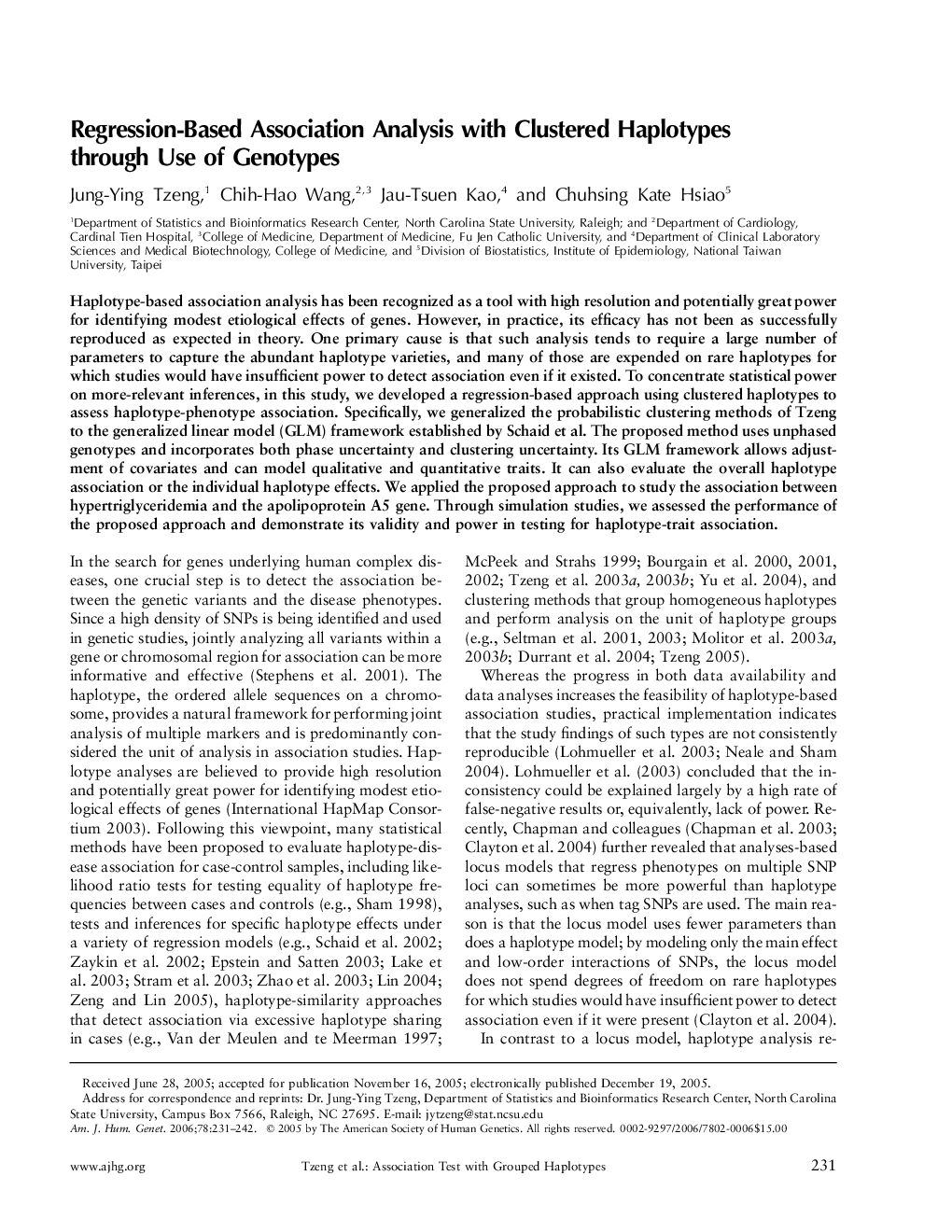| Article ID | Journal | Published Year | Pages | File Type |
|---|---|---|---|---|
| 2812547 | The American Journal of Human Genetics | 2006 | 12 Pages |
Haplotype-based association analysis has been recognized as a tool with high resolution and potentially great power for identifying modest etiological effects of genes. However, in practice, its efficacy has not been as successfully reproduced as expected in theory. One primary cause is that such analysis tends to require a large number of parameters to capture the abundant haplotype varieties, and many of those are expended on rare haplotypes for which studies would have insufficient power to detect association even if it existed. To concentrate statistical power on more-relevant inferences, in this study, we developed a regression-based approach using clustered haplotypes to assess haplotype-phenotype association. Specifically, we generalized the probabilistic clustering methods of Tzeng to the generalized linear model (GLM) framework established by Schaid et al. The proposed method uses unphased genotypes and incorporates both phase uncertainty and clustering uncertainty. Its GLM framework allows adjustment of covariates and can model qualitative and quantitative traits. It can also evaluate the overall haplotype association or the individual haplotype effects. We applied the proposed approach to study the association between hypertriglyceridemia and the apolipoprotein A5 gene. Through simulation studies, we assessed the performance of the proposed approach and demonstrate its validity and power in testing for haplotype-trait association.
